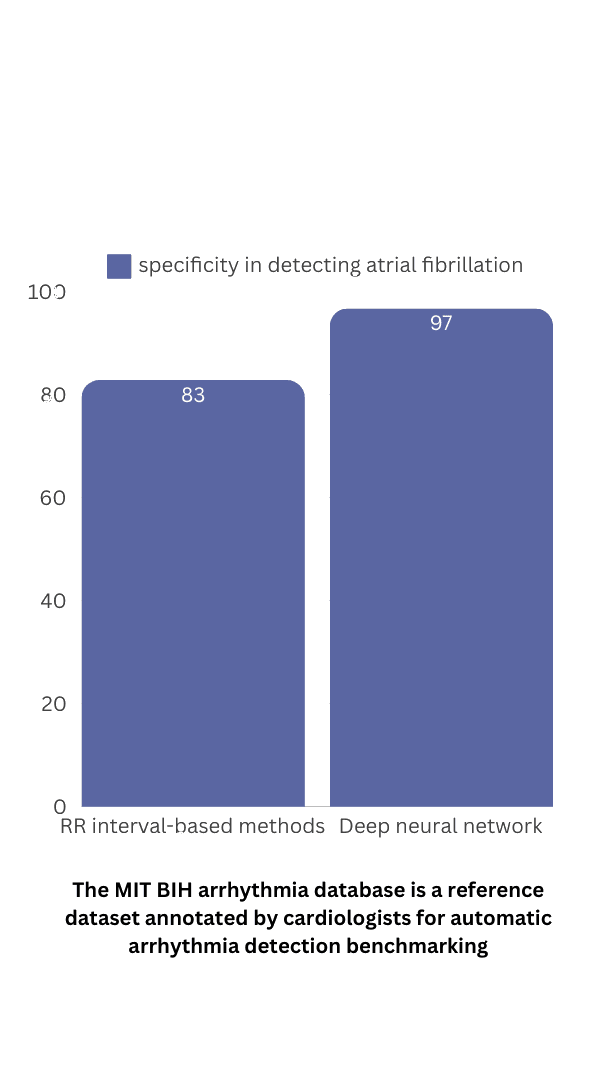
ProHolter
Prolonged Holter ECG using modern certified devices and an integrated software system, as part of an international telemonitoring network based in Central Europe.

For patients
Fill out the order form, we will contact you with the details. Once the monitoring is complete, return the device. You will receive the results within 7 days.
For providers
Expand your portfolio and enhance outpatient diagnostic capabilities with modern technology. Contact us to discuss opportunities for data collection for your scientific project.

The devices are compact, user-friendly, and operate automatically.


The package received contains everything you need, including instructions and contact.

VIVALINK
• Waterproof ECG patch with a minimal size and weight of only 7.5 grams.
• Single-channel ECG.
• Online monitoring mode via mobile phone and an app included in the package.
• Adhesive patch with hydrogel from the manufacturer.
• Battery life of up to 4 days.
• FDA/NMPA approved and CE certified as a wearable medical device.

FAROS
• Minimal weight and size
• Secured with 2 standard ECG electrodes
• Single-channel recording with reliable P-wave recognition
• Battery life of up to 14 days, charging time up to 1.5 hours
• Data is analyzed after the examination is completed
• Regulatory approved with CE Class IIa certification as a medical device
The methodology complies with regulatory standards for medical devices in Europe and the USA.

However, what truly sets ProHolter apart is the remarkable quality of the results.

Analysis
The platform we use for analyzing the collected data employs medical-grade artificial intelligence. The machine learning algorithms are trained on a large dataset to successfully identify various anomalies and provide diagnostic suggestions. These suggestions are reviewed by bioengineers at the telemedicine center, and the results are verified by a trained cardiologist who prepares the final conclusion.
Scientifically Proven Methodology
Prolonged Holter ECG is one of the recommended diagnostic methods for atrial fibrillation, according to the latest version of European guidelines Isabelle C Van Gelder, Michiel Rienstra, Karina V Bunting, Ruben Casado-Arroyo, Valeria Caso, Harry J G M Crijns, Tom J R De Potter, Jeremy Dwight, Luigina Guasti, Thorsten Hanke, Tiny Jaarsma, Maddalena Lettino, Maja-Lisa Løchen, R Thomas Lumbers, Bart Maesen, Inge Mølgaard, Giuseppe M C Rosano, Prashanthan Sanders, Renate B Schnabel, Piotr Suwalski, Emma Svennberg, Juan Tamargo, Otilia Tica, Vassil Traykov, Stylianos Tzeis, Dipak Kotecha, ESC Scientific Document Group , 2024 ESC Guidelines for the management of atrial fibrillation developed in collaboration with the European Association for Cardio-Thoracic Surgery (EACTS): Developed by the task force for the management of atrial fibrillation of the European Society of Cardiology (ESC), with the special contribution of the European Heart Rhythm Association (EHRA) of the ESC. Endorsed by the European Stroke Organisation (ESO), European Heart Journal, Volume 45, Issue 36, 21 September 2024, Pages 3314–3414, https://doi.org/10.1093/eurheartj/ehae176 Comparison of 24-hour Holter Monitoring with 14-day Novel Adhesive Patch Electrocardiographic Monitoring Barrett, Paddy M. et al. The American Journal of Medicine, Volume 127, Issue 1, 95.e11 - 95.e17
These new methodologies allow for the evaluation of patients with infrequent, mild, and nonspecific symptoms, leading to earlier detection of serious conditions such as atrial fibrillation, especially in high-risk patients Wolf PA, Abbott RD, Kannel WB. Atrial fibrillation as an independent risk factor for stroke: the Framingham Study. Stroke. 1991 Aug;22(8):983-8. doi: 10.1161/01.str.22.8.983. PMID: 1866765 Benali K, Duloquin G, Noto-Campanella C, Garnier L, Didier R, Pommier T, Laurent G, Vergely C, Béjot Y, Guenancia C. Efficacy and clinical implications of a stepwise screening strategy for atrial fibrillation after stroke: Insights from the SAFAS study. Arch Cardiovasc Dis. 2024 Aug 22:S1875-2136(24)00285-7. doi: 10.1016/j.acvd.2024.07.062. Epub ahead of print. PMID: 39232887. Grond M, Jauss M, Hamann G, Stark E, Veltkamp R, Nabavi D, et al. Improved detection of silent atrial fibrillation using 72-hour Holter ECG in patients with ischemic stroke: a prospective multicenter cohort study. Stroke 2013;44:3357–64.10.1161/STROKEAHA.113.001884
Prolonged Holter ECG is also suitable for monitoring patients after cardiac surgery or invasive treatment, as well as for evaluating outcomes following ablation therapy. It can be considered a first-line tool in the diagnostic assessment of syncope and palpitations Locati ET, Moya A, Oliveira M, Tanner H, Willems R, Lunati M, Brignole M. External prolonged electrocardiogram monitoring in unexplained syncope and palpitations: results of the SYNARR-Flash study. Europace. 2016 Aug;18(8):1265-72. doi: 10.1093/europace/euv311. Epub 2015 Oct 29. PMID: 26519025; PMCID: PMC4974630.
A prolonged (14-day) Holter ECG can provide additional information for risk stratification in patients with hypertrophic cardiomyopathy and the risk of ventricular arrhythmia Du D, Li COY, Ong K, Parsa A, Weissler-Snir A, Geske JB, Laksman Z. Arrhythmia Monitoring for Risk Stratification in Hypertrophic Cardiomyopathy. CJC Open. 2022 Jan 7;4(4):406-415. doi: 10.1016/j.cjco.2022.01.001. PMID: 35495864; PMCID: PMC9039556.

Indications
The experience from 2008 to 2021, with a total of 75,358 prolonged Holter ECG studies conducted at the telemedicine center in the Czech Republic, reveals the following percentage distribution across various indications:
Diagnostic Effectiveness
• 32% New Findings - Arrhythmias detected that were previously unknown, aiding in accurate diagnosis and treatment planning.
• 27% Negative Results - Symptomatic patients where symptoms were associated with normal sinus rhythm or isolated ectopic beats during complaints.

Proven Technologies

Medical-grade Artificial Intelligence
The data analysis platform we use has been shown to improve specificity in detecting atrial fibrillation from 82.8% to 96.9% while maintaining sensitivity.
Cloud technology
Cloud technology offers significant advantages in healthcare due to its ability to
- enhance collaboration and patient care
- facilitate timely diagnosis
- enhance data security (end-to-end encryption and compliance with healthcare regulations like HIPAA and GDPR)
- reduce costs
Deep neural network
The use of a deep neural network reduces false-positive episodes of atrial fibrillation by nearly 70% compared to implantable devices (ILR - loop recorder), significantly decreasing the clinical burden of managing the data generated by these devices.
The results from ProHolter are not intended to be the sole method of diagnosis. They are provided on a consultative basis.
Contact Us